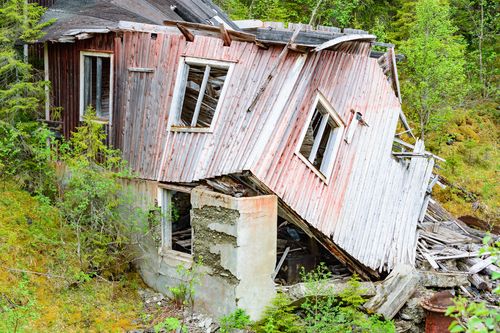As foundation repair experts in South Carolina, we know that structural issues can cost thousands of dollars to fix before they become dangerous. Learning to recognize the warning signs of foundation structural issues in your home can help save money by mitigating the damage. In this article, we will explain various signs of possible structural damage in South Carolina.
What are Signs of Possible Structural Issues in South Carolina?
Slanted Roof. One of the first noticeable signs that your home is experiencing structural issues is a slanted roof. Take a look at your home from across the street and look closely at your roof. Checking from across the street helps because some larger problems cannot be seen from up close. Looking at your roof, you may come to realize that it is slanted. A slanted roof is a huge warning sign, not only of structural damage but that the roof may be ready to cave in.
Windows That Do Not Open. If the windows of your home no longer open all the way or are harder to close, this is a sign that something is structurally wrong with your home. The seemingly small problem of a sticking window can mean that the walls surrounding that window have enlarged. This enlargement could mean there is a problem hidden in the walls, such as structural stress or movement in the wall.
Creaking or Soft Spots in Your Floors. Wooden floors are known for having creaking noises or hollow areas in them. Although it is a common problem, it is not a problem that should go unchecked. Creaking and hollow areas can mean your floors are getting ready to crack.
Leaks from Toilets, Tubs, or Sinks. Leaking from any area of your home can mean there is a problem in the septic system of the house. Septic system problems can cause mold, mildew, and attract vermin to infest your home. Mold and mildew growing in between your walls can be hazardous to your health and expensive to repair. Additionally, mold and mildew can destroy furniture, carpet and most anything it comes into contact with. Live by the adage that no leak is a small leak. Address any leak you find in our home immediately.
Probe Concrete for Weakness. If your house has a poured perimeter foundation and the concrete appears to be chipping and flaking, poke it in a few places with a sturdy screwdriver. The concrete should be too hard to damage. If the concrete chips or breaks, the original concrete mix may have contained dirty or salty sand or too much water. This problem is common in homes built in the early 1900s.
Inspecting your home and detecting any structural problems early can save you a lot of money and grief. If you have any questions or concerns regarding your home’s structural integrity, contact the experts at CNT for a free consultation. Let us help protect one of your largest investments.

